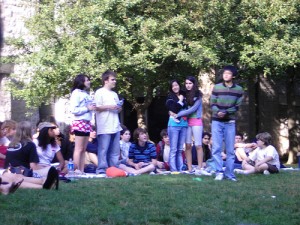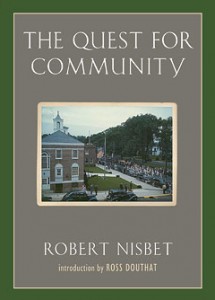Today, I’m returning to Edward Feser’s typology of atheism. Monday, I took a look at ways atheists approach religious philosophy, today the focus is on responses to religious practice. Here’s how Feser splits up atheists:
A. Religious practice is mostly or entirely contemptible and something we would all be well rid of. The ritual side of religion is just crude and pointless superstition. Religious morality, where it differs from secular morality, is sheer bigotry. Even where certain moral principles associated with a particular religion have value, their association with the religion is merely an accident of history. Moreover, such principles tend to be distorted by the religious context. They certainly do not in any way depend on religion for their justification.
B. Religious practice has a certain admirable gravitas and it is possible that its ritual and moral aspects fulfill a real human need for some people. We can treat it respectfully, the way an anthropologist might treat the practices of a culture he is studying. But it does not fulfill any universal human need, and the most intelligent, well educated, and morally sophisticated human beings certainly have no need for it.
C. Religious practice fulfills a truly universal or nearly universal human need, but unfortunately it has no rational foundation and its metaphysical presuppositions are probably false. This is a tragedy, for the loss of religious belief will make human life shallower and in other ways leave a gaping void in our lives which cannot plausibly be filled by anything else. It may even have grave social consequences. But it is something we must find a way to live with, for atheism is intellectually unavoidable.
Last time, I thought it was reasonable to think you could assign individual religious traditions a single category, but the system breaks down here. Unless I’m just rating religions on ‘ritual’ generically, my scores for an individual religion will whipsaw wildly depending on what practice we’re talking about.
Most individual religious practice falls into a kind of A* Feser doesn’t account for: it’s not particularly pernicious, but it is useless. Genuflecting before you sit at Mass, crossing yourself and saying a prayer when an ambulance passes, saying a blessing over food… the worst harm you’re doing yourself is the opportunity cost of spending time on useless ritual. No worse and no better than knocking on wood.
There are legitimate scary type-A practices. The readiest example I have is Michael and Debi Pearl’s biblically-inspired spanking regimen that has been linked to deaths and serious injury. Also on the list: ex-gay reeducation camps.
Then there are a fair number of type-Bs. I can certainly imagine that requiring yourself to discuss your transgressions with someone else keeps you honest and can help you get out of the hole (provided the sins on your church’s list are actually harmful). When I experimented with prayer, I learned to be better about wanting other people’s good, not just my own. But these salutary effects are in the B-block because I don’t think they depend on religion being true to work. After all, as I pointed out after the Lenten prayer experience, my quasi-Kantianism was so wrong that you didn’t have to be all that correct to be able to spot my error.
I suspect Feser wants me to put ‘ritual’ broadly defined into type-C, but I don’t buy it. Although atheists are still arguing about what atheist ritual and secular authority should look like, there’s no denying plenty of non-religious ritual has taken root and flourished. Trust me that “I love CTY and I love the Passionfruit” will bring a certain subset of the geeky population to tears. Secular ritual isn’t an innovation, either. Immigrant communities and trade associations formed tight-knit societies that incorporated shibboleths and ritual.
What makes religious ritual unique is its ability to be small-c catholic. Anyone can be Catholic and walk into a church anywhere in the world and hear the same liturgy (though, with my weak French, it was hard to pick out anything but the set-in-stone phrases when I attended Mass in Notre Dame). That universalism is something secular ritual can’t match and is the closest anything comes to type-C practise.
But we’re already losing it. And this isn’t a case of mo’dernity, mo’problems; the balkanization of Christianity started a long time ago. At this point, to get into type-C, an atheist would have to wish to actively roll back the Reformation and put the Church at the center of life. I’d like it if there were a universal center to life and if people had the kind of common frame of reference and language that the KJV used to provide, but I can’t try to build all that around something I believe to be false.
The real answer is probably that the population is too large to sustain a universal core culture. Technically, the problem is that the population is too large and that there’s not a universal measure of distance. I can be connected to people arbitrarily far away so it’s hard to build up communities. I’m still not sure what the solution is.
#I’veGot99ProblemsandNisbetRepresentsaSignificantProportionofSaidProblems















